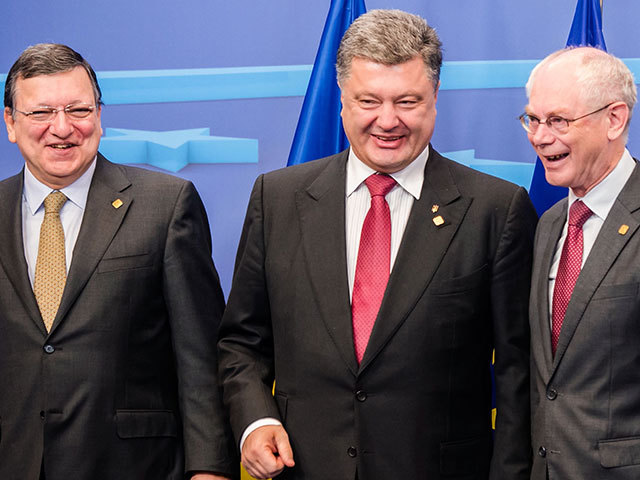
The European Union must make security of energy supply, reduction of costs and the fight against climate change a priority for the next five years, the 28-nation bloc’s leaders are set to declare.
The EU heads of state and government will back efforts to speed the creation of a common energy market, develop infrastructure and diversify supply, according to a draft strategic agenda to be signed at a summit in Brussels today.
The vow to move toward “an energy union with forward-looking climate policy” comes after a pricing dispute led to the cutoff of Russian natural gas supplies to Ukraine, the transit country for around 15% of the EU demand for the fuel.
“We must avoid Europe relying to such a high extent on fuel and gas imports,” leaders are set to say after the summit.
“To ensure our energy future is under full control, we want to build an energy union aiming at affordable, secure and sustainable energy.”
The pledge coincides with an EU debate on energy-security strategy and climate and energy policies for the next decade.
The European Commission, the bloc’s regulatory arm, proposed in January the bloc adopt a binding goal to cut greenhouse gases by 40% by 2030, accelerating the pace of emissions reduction from 20 percent in 2020 compared with 1990 levels.
It also recommended an EU-wide target to boost the share of renewables in energy consumption to 27%.
A third pillar in the 2030 package should be a target to increase energy savings, according to EU Energy Commissioner Guenther Oettinger.
The commission is considering proposing an energy efficiency goal of 27% to 30% next month, according to sources who asked not to be identified, citing policy.
EU leaders will pledge to mobilize all efforts to meet the October deadline for a deal on the climate and energy framework that they set at their March gathering, according to the draft.
They will also seek an agreement on long-term energy security measures in October after backing the immediate implementation of actions to avoid gas supply disruptions this winter amid the Ukraine crisis.
The short-term steps that governments should take include reinforcing emergency mechanisms, gas storage and reverse flow, the draft showed. Gas infrastructure investments, including with third countries, should be pursued in full respect of the EU’s internal market and competition rules, the leaders will say, according to the document.
Oettinger has repeatedly urged member states involved in the construction of the South Stream gas pipeline, which will carry Russian gas under the Black Sea to Europe, to ensure the project is in line with EU legislation.
The five-year EU strategy, to be adopted alongside the political statement on the 2030 package, will also underscore the need to complete a common energy market, find ways to increase the EU’s bargaining power and make the bloc’s gas market more transparent.
The EU must also continue to lead the fight against global warming by agreeing setting ambitious 2030 climate targets, according to the draft.
Recommended for you
